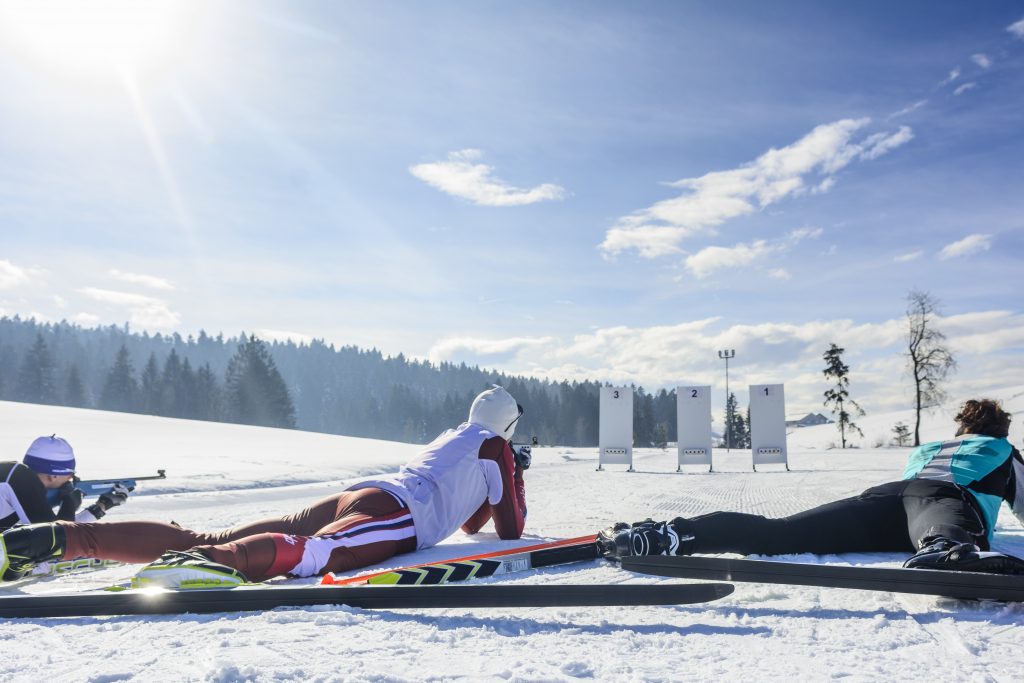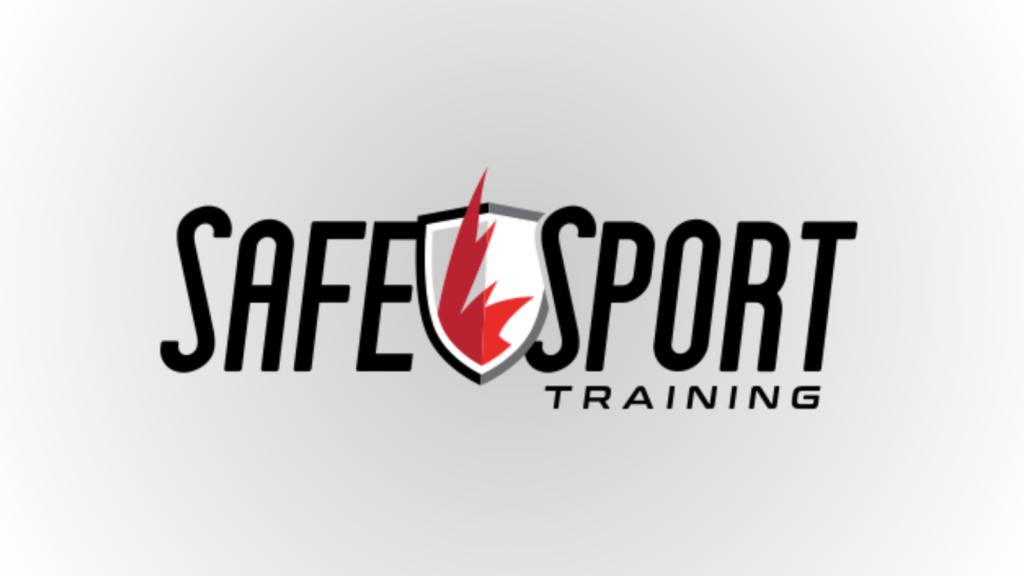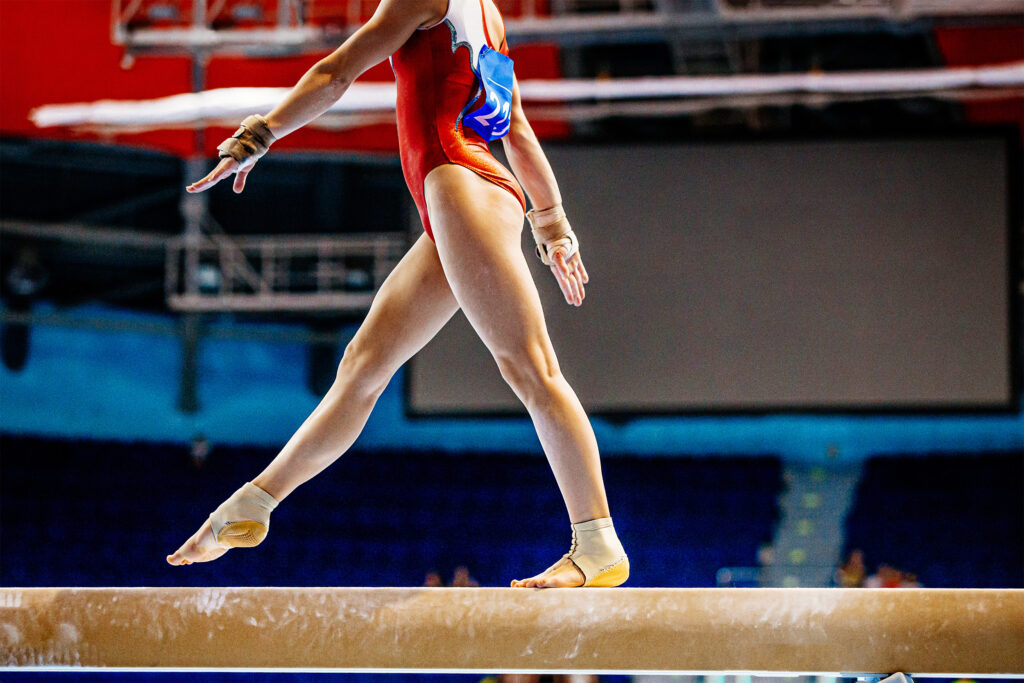Safeguarding
Safeguarding refers to efforts to create a sport environment that is safe and inclusive which protects participants from maltreatment as well as threats to sport integrity. Our resources are curated to support safe sport environments, where everyone has a role to play.
Search Safeguarding Resources
Top 10 resources
- Safe Sport and Safeguarding in Canada Literature Review
- Supporting Safe Environments for Youth in Sports Research Summary
- SCRI Panel: Panel: The future of safe sport
- Universal Code of Conduct to Prevent and Address Maltreatment in Sport
- Canadian Safe Sport Program
- SIRC Article: Match Manipulation and Gambling in Sport
- Overview of Competition Manipulation
- Overview of the Canadian Anti-Doping Program
- NCCP Creating a Positive Sport Environment Training Module
- NCCP Safe Sport Training Module

Featured resource
Natalie Durand-Bush and Krista Van Slingerland

Featured resource
Coaching Association of Canada

Featured resource
Gretchen Kerr, University of Toronto
Quick Facts
What are they key terms related to maltreatment in sport?
- Safe sport: Efforts to create a sport environment that is free from maltreatment, and optimizes sport experiences through promoting holistic development, respect, human rights (for example: safety, inclusion), and fun. Learn more.
- Maltreatment: A volitional act and/or omission that
results in harm or has the potential for physical or psychological harm. Learn more. - Prohibited behaviour: Conduct described in the Universal Code of Conduct to Prevent and Address Maltreatment in Sport (UCCMS), including but not limited to maltreatment.
- Disclosure: The sharing of information by a person regarding an incident or a pattern of Maltreatment experienced by that person, including a breach of reasonable boundaries. Disclosure does not constitute a formal Report. From the UCCMS.
- Reporting: The provision of information by a Participant or by any person to an independent authority designated by the Adopting Organization to receive Reports regarding Prohibited Behaviour. From the UCCMS.
What are the key terms related to sport integrity?
- Competition manipulation: “is a deliberate effort to influence elements of a sporting contest or its outcome, usually for financial gain.” From the Canadian Centre for Ethics in Sport.
- Canadian Anti-Doping Program: is the Canadian program, administered by Canadian Centre for Ethics in Sport “designed to prevent, deter and detect doping and serves to protect the integrity of sport and the rights of clean athletes.” From the Canadian Centre for Ethics in Sport.
What are they key terms related to mental health?
- Mental Health: “A state of psychological, emotional, and social well-being in which individuals are capable to feel, think, and act in ways that allow them to enjoy life, realize their potential, cope with the normal stresses of life, work productively, and contribute to their community” (WHO, 2022).
- Mental Illness: “A health condition characterized by alterations in individuals’ feeling, thinking, and behaving, leading to significant distress and impaired functioning in their personal and professional activities. It pertains to all diagnosable mental health disorders such as depression, anxiety disorders, schizophrenia, eating disorders, and substance use disorders.” Learn more.
What is the UCCMS & the Canadian Safe Sport Program (CSSP)?
- The Universal Code of Conduct to Prevent and Address Maltreatment in Sport (UCCMS) is a policy which was created to support the creation of quality, inclusive, accessible, welcoming and safe sport experiences, and propel the work towards creating sport environments that are free from maltreatment and ensure all sport participants are treated with dignity and respect. The UCCMS outlines prohibited behaviours for those working in a sport environment in an effort to prevent maltreatment.
- The Canadian Safe Sport Program (CSSP) is the program created to administer and enforce the UCCMS for Sport Organizations, by receiving and
responding to Reports of Prohibited Behaviour, and by developing and carrying out education, prevention and policy activities, including sport environment assessments. The Canadian Centre for Ethics in Sport (CCES) has been mandated to administer the CSSP.
Why is the athlete voice a critical part of safe sport environments?
A critical component to safeguarding sport is ensuring the athlete voice is at the heart of decision-making. This can be done formally through athlete commissions and athletes as board directors, as well as through ensuring athletes have choice and autonomy in their training. Autonomy supportive coaching refers to “a style used by coaches to support their athletes’ freedom, encourage their independence, and involve them in decision-making.” Learn more.
The Association of Canada’s National Team athletes, AthletesCAN, is the collective voice of Canadian national team athletes. It ensures an athlete-centered sport system by developing athlete leaders who influence sport policy and, as role models, inspire a strong sport culture.
Where is maltreatment, doping violations, or competition manipulation reported?
Reporting maltreatment can be done through the Canadian Safe Sport Program (CSSP). Reports can be made by phone or text to 1-866-971-2777. It is important to also check the safe sport resources specific to the sport organization for details on Independent Third-Party reporting options.
Reporting doping violations or competition manipulation can be done by contacting the CCES Integrity Hotline.
How does safeguarding impact interactions with sport participants and the coach-athlete relationship?
In addition to technical and tactical expertise, it is a coach’s responsibility to create a sport environment that is high quality, inclusive, accessible, welcoming, free from maltreatment and ensures all sport participants are treated with dignity and respect (UCCMS).
Optimal athletic performances (at all levels of sport) require athletes to move out of their comfort zones and sometimes this means the coach needs to encourage the athletes to do so. However, when challenging athletes, you must also support them (Fletcher & Sarkar 2016).
Safe Sport does not mean that coaches cannot encourage athletes to move outside of their comfort zones. What it does do is stimulate reflection on whether the coach takes control and ‘pushes’ the athlete, or leaves responsibility with the athlete by ‘encouraging’ the athlete and supporting them to make a decision (for example: autonomy supportive coaching). Learn more.
Safe Sport does not mean that coaches cannot develop a close, trusting relationship with their athletes. In fact, research on achieving optimal athletic performance cites the importance of having a close, trusting coach-athlete relationship (Jowett, 2017). From a Safe Sport perspective, such relationships can and should occur for wellbeing and optimal performance, but that relationship boundaries need to be maintained, and interactions, to the extent possible, should occur in open and observable spaces. Learn more about the Rule of Two from the Coaching Association of Canada.
What does it mean to create a safe sport environment?
A safe sport environment is one that is free from maltreatment, and optimizes sport experiences through promoting holistic development, respect, human rights (for example: safety, inclusion), and fun. There are several ways to create a safe environment, through coaching practices (see above), as well as education and awareness campaigns (for example: Tennis Canada Sport Safety Page).
It is also important to have strong policies and governance in place. For example, Volleyball Canada’s pan-Canadian Safe Sport policy has a strong policy alignment between the National and Provincial/Territorial Sport Organizations, and the Canadian-Anti-Doping Program.
How does safeguarding intersect with equity and inclusion in sport?
A key component to safeguarding sport is ensuring the sport environment is diverse, equitable, and inclusive, as research has shown athletes from equity-denied groups experience an increased prevalence of maltreatment (Gurgis et al., 2022). Pay attention to specific circumstances and needs of Women, Racialized, Parasport, and LGBTQ athletes, and take efforts such as using inclusive language and using accessible venues; as well as having zero tolerance for all forms of harassment, discrimination, and bullying.
Resources to support creating a safe sport environment for equity-denied groups include:
How does safeguarding intersect with athlete mental health?
It is important to create an environment that prioritizes athlete mental health and well-being. This includes improving mental health literacy through education, ensuring sport participants have access to mental health resources, and creating a psychologically safe environment that allows participants to speak freely without fear of retribution. Learn more.
Video Resources
Concussion Reporting: The roles of coaches, players, and trainers
- Western University and SIRC
- 2024
SCRI Panel: The future of safe sport
- viaSport BC, Sport Nova Scotia, Ontario Tech University, and SIRC
- 2024
Engaging Girls and Women in Sport Mini Series – Part 4 : Connecting mind and movement
- University of British Columbia, University of Ottawa, Team Canada, Canadian Women & Sport, and SIRC
- 2022
Experts in the House webinar with Beckie Scott: Politics vs Principle
- Spirit North and SIRC
- 2020
True Sport Report 2022: Analyzing the key findings | Rapport Sport pur 2022: Analyse des conclusions
- True Sport and SIRC
- 2022
An exploration of athletes experiences & coach-athlete conversations of mental health & illness
- University of Toronto and SIRC
- 2022
Knowledge Nuggets
knowledge nuggets
The gap between promotion and practice in sport governance
A recent review looked at the values sport organizations often profess to follow, such as transparency, accountability, and democracy, which are often vague and not
A recent review looked at the values sport organizations often profess to follow, such as transparency, accountability, and democracy, which are often vague and not backed by action. When assessed, organizations were generally applying them only at a basic or moderate level, showing a gap between promotion and practice.
knowledge nuggets
What is safety in sport?
With the recent release of the Future of Sport in Canada Commission’s preliminary report, there is growing discussion about what safe sport really means. A
With the recent release of the Future of Sport in Canada Commission’s preliminary report, there is growing discussion about what safe sport really means. A Canadian study of 386 national team athletes exemplified that safe sport goes beyond preventing abuse. Athletes defined it as a culture of fairness, respect, equity, and being supported and valued, not only protected from harm.
knowledge nuggets
Concussion recovery and youth mental health
A population-based study looked at data from 152,000 youth with concussions and found they faced a 39% higher risk of new mental health conditions, including
A population-based study looked at data from 152,000 youth with concussions and found they faced a 39% higher risk of new mental health conditions, including anxiety, mood disorders, and behavioral challenges, when compared to peers without concussion. Risks of self-harm and psychiatric hospitalization were also elevated, showcasing the need to monitor youth mental health after concussion.
knowledge nuggets
How social factors can shape concussion recovery
A recent Canadian study of youth hockey players found that recovery from concussion isn’t just physical. Players with peer and family difficulties and stress experienced
A recent Canadian study of youth hockey players found that recovery from concussion isn’t just physical. Players with peer and family difficulties and stress experienced longer return times. Supporting positive peer connections and helping parents manage stress may promote faster recovery.
knowledge nuggets
Improving recognition and awareness of concussions
In Alberta, diagnosed concussions in children more than doubled between 2004–2018, reflecting both more injuries and greater awareness. With Concussion Awareness Week approaching, this is
In Alberta, diagnosed concussions in children more than doubled between 2004–2018, reflecting both more injuries and greater awareness. With Concussion Awareness Week approaching, this is a reminder that understanding of concussions is improving, and, it’s important for parents, coaches, and sport leaders to keep learning how to recognize and respond to them.
knowledge nuggets
Preventing abuse in sport takes ongoing effort
An International Olympic Committee consensus found interpersonal violence is common in sport, with psychological abuse occurring most often and posing higher risk for youth, LGBTQ+
An International Olympic Committee consensus found interpersonal violence is common in sport, with psychological abuse occurring most often and posing higher risk for youth, LGBTQ+ athletes, and athletes with disabilities. The findings highlight the need to hear from athletes, embed trauma informed practices, and create sport environments built on respect and safety.
knowledge nuggets
Tackling stress can help athletes recover from injuries faster
Experts reviewing 50 years of research found stress increases injury risk and slows recovery, while mindfulness and mental skills training, like goal setting and visualization,
Experts reviewing 50 years of research found stress increases injury risk and slows recovery, while mindfulness and mental skills training, like goal setting and visualization, support faster healing and return to play. Protocols such as screening athletes for stress and connecting them with mental health support can help medical staff get athletes back to competition faster.
knowledge nuggets
How does social media effect hazing?
This Canadian study found that social media can be both helpful and harmful when it comes to hazing in varsity sport. While athletes use it
This Canadian study found that social media can be both helpful and harmful when it comes to hazing in varsity sport. While athletes use it to build team identity, many avoid posting about hazing to protect their team’s image or avoid causing harm. The study points to a need for better education and athlete-informed policies to address these risks.
More safeguarding resources
|
|
|
|
|
|
|
|
|
|
|
|
|
|